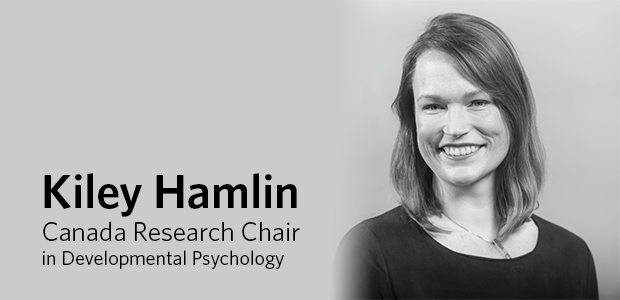

Before the application of research, before the patent, ethics review, donations or grants, there is a person with a desire to discover. They embark into the unknown, making inquiries, investigating what has been and inquiring into the possibilities by asking why not? Through their research, they uncover new truths that result in our lives, and our world, being changed for the better.
Faces of Research was created by UBC Arts as a series showcasing the Canada Research Chairs in the Faculty of Arts, including Dr. Kiley Hamlin, associate professor in the department of psychology.
Where does morality come from? The answer used to be obvious: morality is the result of learning. Through teaching from parents, interactions with peers and observations of how others act, we learn which actions are right and which are wrong, who is good and who is bad, who deserves praise and who should be punished.
But while there is no doubt that experience plays a large role in moral development, the work of Dr. Kiley Hamlin, Canada Research Chair in Developmental Psychology, is showing that some aspects of morality, such as liking good guys and disliking bad guys, may be innate. ⠀
⠀
Hamlin is studying very young infants who arguably lack many of the experiences we may think are required for moral judgments. She presents infants with brief puppet interactions in which a character gets helped by a nice puppet and harmed by a mean puppet. After the show, infants choose between the nice and mean puppets and an overwhelming majority of them choose the good guy. ⠀
⠀
Through this and many other studies, Hamlin is exploring the earliest developmental emergence of human social and moral judgment. Her research may completely change the way we think about morality, both developmentally and in its adult form.⠀
This article was written by UBC Arts. Read the full Faces of Research feature.⠀⠀


